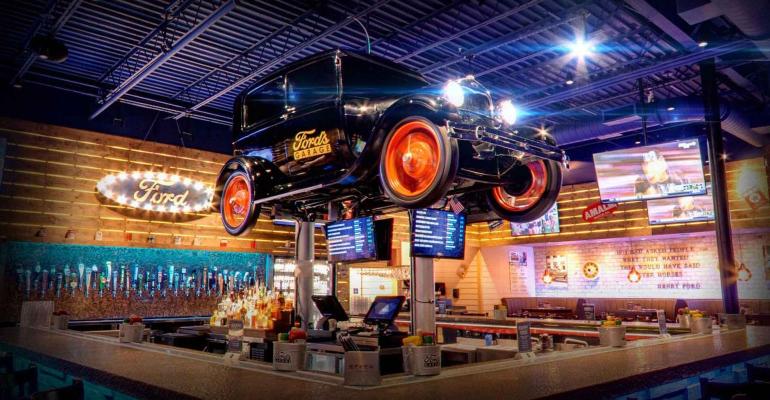It’s no secret that full-service restaurants were hit disproportionately hard throughout these past three years and have the biggest climb back to normalcy — whatever that may be. But for Steve Shlemon, president of Ford’s Garage, the challenges that piled up — from the pandemic to labor shortages to supply chain pressures — have presented a major opportunity for his company, which now spans about 25 locations in five states.
“All of those challenges allowed us to take a really deep look at our business at every level. We had to think about being more economical. We had to make changes and think about what’s important to the customers and the staff,” Shlemon said. “A lot of those changes have stuck around.”
The menu, for instance, is 25% smaller than it was pre-pandemic. It will likely stay that way, and as Ford’s Garage looks at SKUs and operational complexity more discerningly, nothing will be added without something being taken away. The company also shifted toward more efficient cooking platforms and equipment. The company used to rely on flattop grills and has moved toward clamshell grills, for instance. Shlemon said these changes not only ease labor pain points, but also generate higher-quality products. And there’s the consumer-facing tech piece: order/pay at the table, order online, geofencing for marketing, etc.
“We’ve spent a lot of time in the last three years trying to make things seamless for the customers and staff, and those that haven’t done a full-court press have been more challenged,” he said.
It’s worth noting that some things haven’t stuck and that some challenges remain. Shlemon said Ford’s Garage tested some ovens and “they were phenomenal,” for example, but adds that the training personnel hasn’t kept up with the rapid pace of innovation.
“So if our equipment broke down, nobody was available to fix it,” he said.
How Ford’s Garage derives what sticks and what doesn’t is by testing in a single, mid-performing unit.
“Put it in a restaurant that’s not the best or the worst because it’s going to skew one way or another. Then you test it and see if you can justify it. Part of the return is on capital, the other part is quality of food and ease of training. Half of what we’ve tried has failed miserably, the other half we went with,” Shlemon said. “It takes a lot of testing to prove something out.”
Shlemon believes the industry’s challenges, especially on the equipment supply side, will continue for the next year and a half and Ford’s Garage will continue to apply the approach and lessons learned throughout the past several years. He’s optimistic his experiential concept will thrive because the team has become more disciplined.
“You have to stay the course and understand why. You have to be diligent and prudent and aggressive to make sure it happens and if you do that, it might take you longer, but you’ll find success,” he said. “Some people start half the process and don’t finish it. In this business, you have to be persistent. If it’s not working, fail fast, but continue pushing.”
Contact Alicia Kelso at [email protected]
Learn more from Steve Shlemon at CREATE: The Experience, where he will speak with NRN executive editor Alicia Kelso about the future of full-service restaurants, Oct. 1-3 in Palm Springs.





